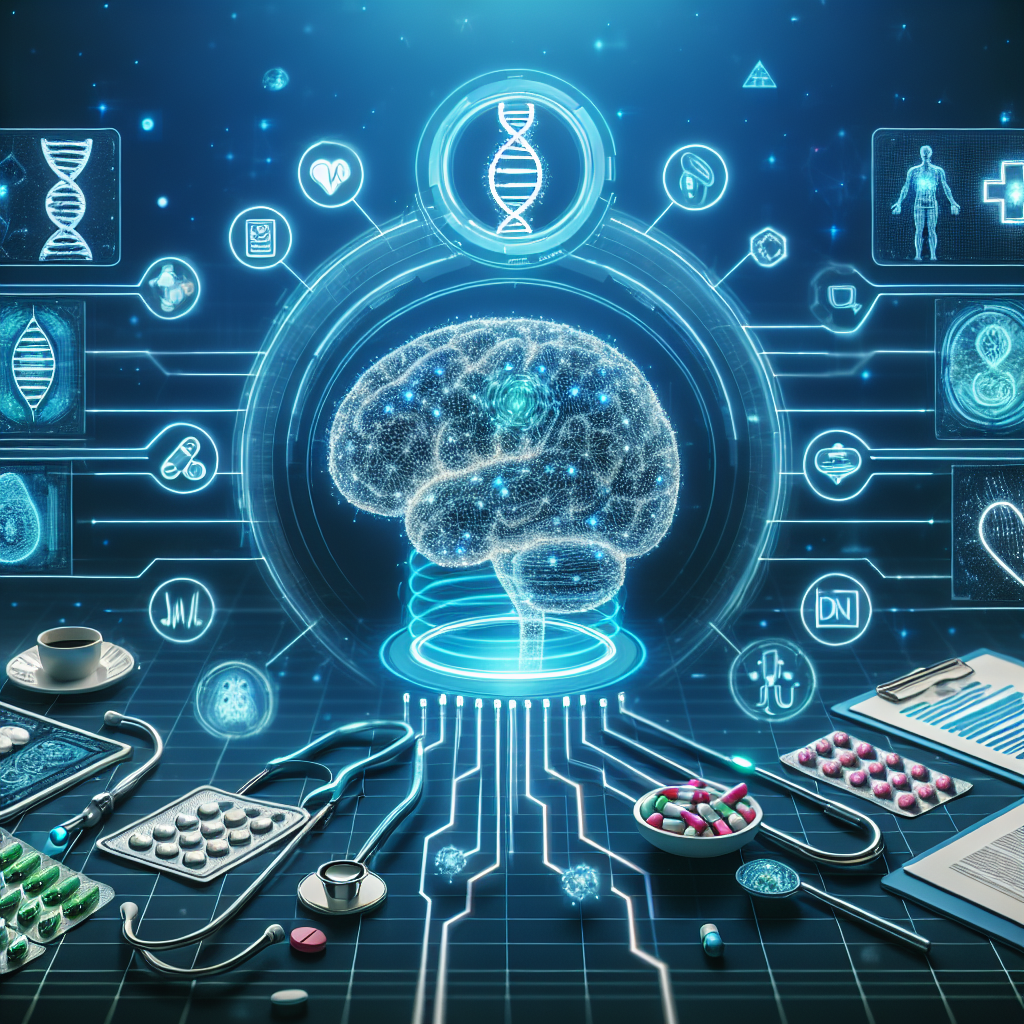Artificial General Intelligence (AGI) is a concept that has been the subject of much speculation and debate in recent years. AGI refers to a form of artificial intelligence that is capable of performing any intellectual task that a human being can. This includes tasks such as problem solving, reasoning, learning, and understanding natural language. While current AI systems are limited to specific tasks and domains, AGI has the potential to revolutionize many industries, including healthcare and medicine.
The healthcare industry is ripe for disruption by AGI. With the increasing complexity of medical data and the growing demand for personalized healthcare, AGI can play a critical role in transforming how we diagnose, treat, and prevent diseases. In this article, we will explore the potential impact of AGI on healthcare and medicine, and discuss how this technology could revolutionize the way we approach healthcare in the future.
AGI in Healthcare: Current Applications
While AGI is still in its infancy, there are already several applications of artificial intelligence in healthcare that provide a glimpse of what the future holds. One of the most promising areas of research is in medical imaging. AGI systems have been developed that can analyze medical images, such as X-rays and MRI scans, with a level of accuracy that rivals that of human experts. This can help radiologists to detect diseases such as cancer at an earlier stage, leading to better outcomes for patients.
Another area where AGI is making an impact is in drug discovery. The process of developing new drugs is time-consuming and costly, with many potential drug candidates failing to make it to market. AGI systems can help to streamline this process by analyzing vast amounts of data to identify potential drug candidates that have a higher likelihood of success. This can lead to the development of more effective treatments for a wide range of diseases.
AGI also has the potential to revolutionize personalized medicine. By analyzing a patient’s genetic data, medical history, and other relevant information, AGI systems can help doctors to tailor treatments to the individual needs of each patient. This can lead to more effective treatments with fewer side effects, improving outcomes for patients and reducing healthcare costs.
The Potential Impact of AGI on Healthcare
The potential impact of AGI on healthcare is vast. By harnessing the power of artificial intelligence, we can improve the accuracy and speed of diagnoses, develop more effective treatments, and personalize healthcare in ways that were previously unimaginable. Here are some of the ways that AGI could revolutionize healthcare and medicine:
1. Faster and more accurate diagnoses: AGI systems can analyze medical data with a level of accuracy that surpasses that of human experts. This can help to speed up the diagnostic process and ensure that patients receive the right treatment at the right time.
2. Personalized medicine: By analyzing a patient’s genetic data, medical history, and other relevant information, AGI systems can help doctors to tailor treatments to the individual needs of each patient. This can lead to more effective treatments with fewer side effects, improving outcomes for patients.
3. Drug discovery: AGI systems can help to streamline the process of drug discovery by analyzing vast amounts of data to identify potential drug candidates that have a higher likelihood of success. This can lead to the development of more effective treatments for a wide range of diseases.
4. Remote monitoring and telemedicine: AGI systems can help to monitor patients remotely and provide real-time feedback on their health status. This can help to improve access to healthcare for patients in remote areas and reduce the burden on healthcare systems.
5. Predictive analytics: AGI systems can help to predict disease outbreaks, identify high-risk patients, and optimize healthcare resources. This can help to improve public health outcomes and reduce healthcare costs.
FAQs about AGI in Healthcare
Q: How is AGI different from other forms of artificial intelligence?
A: AGI is different from other forms of artificial intelligence in that it is capable of performing any intellectual task that a human being can. While current AI systems are limited to specific tasks and domains, AGI has the potential to perform a wide range of tasks in healthcare and medicine.
Q: How can AGI improve the accuracy of medical diagnoses?
A: AGI systems can analyze medical data with a level of accuracy that surpasses that of human experts. By analyzing vast amounts of data, AGI systems can help doctors to make more accurate diagnoses and ensure that patients receive the right treatment at the right time.
Q: Will AGI replace human doctors and healthcare professionals?
A: While AGI has the potential to revolutionize healthcare and medicine, it is unlikely to replace human doctors and healthcare professionals entirely. Instead, AGI can help to augment the capabilities of healthcare professionals and improve the quality of care that patients receive.
Q: How can AGI help to personalize healthcare?
A: By analyzing a patient’s genetic data, medical history, and other relevant information, AGI systems can help doctors to tailor treatments to the individual needs of each patient. This can lead to more effective treatments with fewer side effects, improving outcomes for patients.
Q: What are the ethical implications of using AGI in healthcare?
A: The use of AGI in healthcare raises a number of ethical concerns, including issues related to patient privacy, data security, and the potential for bias in AI algorithms. It is important for healthcare organizations to address these concerns and ensure that the use of AGI in healthcare is ethical and responsible.
In conclusion, AGI has the potential to revolutionize healthcare and medicine in ways that were previously unimaginable. By harnessing the power of artificial intelligence, we can improve the accuracy and speed of diagnoses, develop more effective treatments, and personalize healthcare in ways that were previously impossible. While there are still many challenges to overcome, the future of healthcare looks brighter with AGI at its side.

